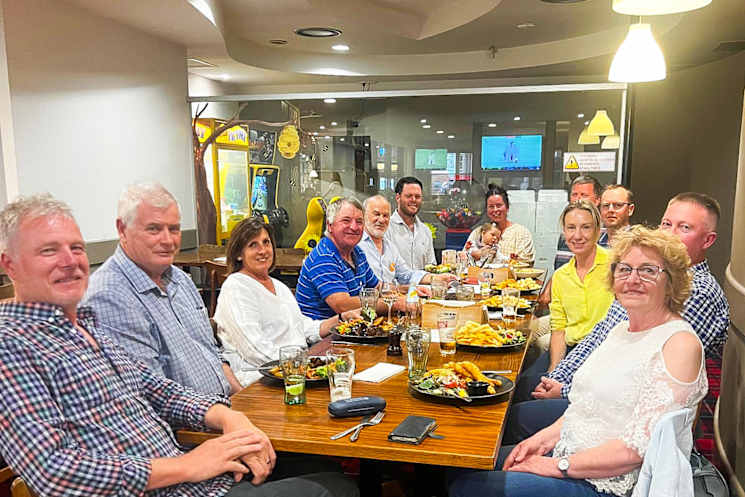
Deb Leonard independent candidate for Monash (third on right), recently organised a meeting with representatives of the farming industry and service providers to discuss issues related to the farming sector.
Deb Leonard independent candidate for Monash, recently organised a meeting with representatives of the farming industry and service providers to discuss issues related to the farming sector.
Daryl Hoey, a Wonthaggi dairy farmer, hosted the night at McCartin's Hotel in Leongatha.
"I wanted to get the industry together so that Deb could listen to their voices. I asked them to identify three issues they currently face and three coming down the road for the farming industry".
The gathering, based on the Kitchen Table Conversation process, drew in more than 10 participants including farmers, food production and agriculture automation experts and banking and finance executives and advisors.
"The night was incredibly valuable" said Deb Leonard.
"The opportunity to meet face to face and listen to farming industry experts and farmers themselves is what Community Independents are all about. We want local voices to feed into federal decisions."
The group included some of the youngest dairy farmers currently in the industry along with several old hands.
"Our Kitchen Table Conversations work with Chatham House Rules - we don't disclose who said what. But the diversity of participants provided a rich blend of views and suggestion," Ms Leonard said.
There was a view that the conventional farming industry had lost its voice to government.
Fragmentation of the representative groups, especially in the dairy sector, along with a loss of confidence in their own narrative meant that farming needs were not properly heard.
Some of the issues discussed included increased competition for capital as urban development expands, especially along the transport corridors. At the same time infrastructure that supported timely delivery of produce was run down.
One participant observed that "access to markets and production such as milk collection is via major towns". This increases delays and biosecurity risks, especially with the concentration of activity around the Koonwarra Saleyards.
Education was a crucial issue. From the schoolyard - where more can be done to encourage food basics about where food comes from - to apprenticeship pathways and value-added tertiary certified farm technicians.
"If they don't teach you about farming, what is the motivation to be a farmer?" said one veteran of the farming industry.
There was a recognition of change in the industry as well. Larger farms meant that better people management was needed.
Automation was also discussed as one solution to the continued shortage of reliable, skilled labour. Shortage of housing for agricultural workers was also identified as a significant issue in attracting suitable staff.
Frustration at the current state of politics and policy development was highlighted. Evidence-based and science-based policy has given way to policy based on populism and opinions. The participants expressed concern at bureaucratic solutions being imposed rather than input from locals with knowledge and expertise in the area.
"The two major parties seem unwilling to work together on anything for the national good. They are more interested in colluding for self-interest when it comes to policy," Ms Leonard said.
"I am extremely grateful to everyone who gave their time.
"Their comments will inform my approach to policies for the farm sector which is so important for our Monash electorate."





